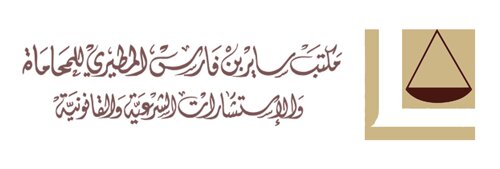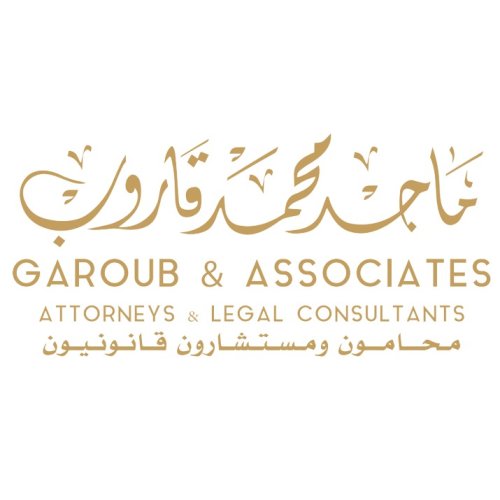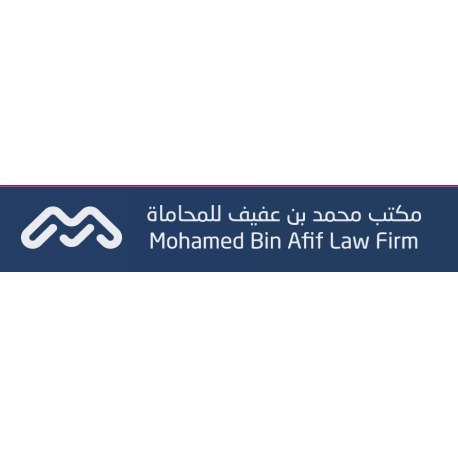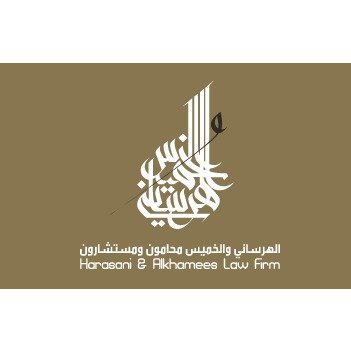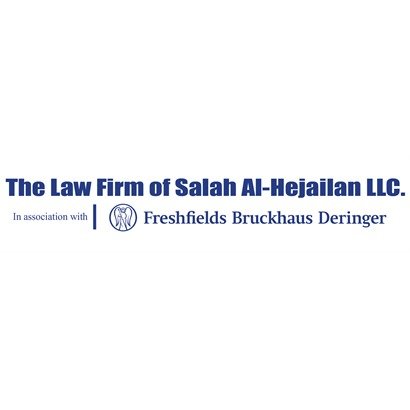Best Structured Finance Lawyers in Jeddah
Share your needs with us, get contacted by law firms.
Free. Takes 2 min.
List of the best lawyers in Jeddah, Saudi Arabia
About Structured Finance Law in Jeddah, Saudi Arabia
Structured Finance in Jeddah, Saudi Arabia refers to advanced financial transactions that go beyond standard loan agreements or traditional forms of financing. These arrangements are used by corporations, financial institutions, and investors to meet complex funding needs, manage risk, and optimize returns. Structured Finance often involves securitization, asset-backed securities, project finance, and other tailored financial instruments. In Saudi Arabia, the robust economic landscape, large-scale infrastructure projects, and strengthening regulatory framework make Structured Finance both significant and highly regulated. Jeddah, as a key financial hub, plays a pivotal role in Structured Finance activities within the Kingdom.
Why You May Need a Lawyer
Structured Finance transactions are complex and often involve significant risks. Legal assistance is crucial in navigating the following situations:
- Drafting or reviewing complex financial agreements or documents for securitizations, syndications, or asset-backed instruments.
- Negotiating terms between multiple parties, including banks, investors, and governmental agencies.
- Ensuring compliance with Saudi laws, Shariah regulations, and Saudi Central Bank (SAMA) guidelines.
- Risk assessment and mitigation strategies within multifaceted finance structures.
- Handling cross-border transactions and ensuring regulatory approvals for foreign investments.
- Resolving disputes related to default, enforcement of security interests, or breach of contract.
- Structuring Islamic finance arrangements that comply with Shariah principles.
- Advising on the tax implications of intricate financial structures.
- Assisting with initial public offerings (IPOs), mergers, or acquisitions that leverage structured financial products.
- Navigating financial restructuring or insolvency situations tied to complex finance arrangements.
Local Laws Overview
Saudi Arabia’s legal and regulatory environment for Structured Finance is shaped by a combination of conventional legal principles, Shariah law, and modernized financial regulations. Key aspects include:
- The Capital Market Law and its bylaws govern securities, offering significant protections and requirements for Structured Finance products like sukuk and asset-backed securities.
- The Saudi Arabian Monetary Authority (SAMA) offers detailed banking and finance regulations, particularly around lending, capital adequacy, and risk management.
- Shariah compliance is mandatory, meaning financial instruments must adhere to Islamic principles, including the prohibition of interest (riba) and requirements for asset-backing.
- The Commercial Pledge Law and recent reforms have enhanced the enforceability of security interests, crucial for secured transactions in Structured Finance.
- Cross-border transactions are subject to strict foreign investment regulations and may require approval from the Ministry of Investment (MISA).
- Recent reforms have increased transparency, disclosure, and investor protections, aligning Saudi practices more closely with international standards.
Frequently Asked Questions
What is Structured Finance?
Structured Finance refers to complex financial transactions or products typically used to manage risk, improve liquidity, or finance large projects. It goes beyond standard lending and can include securitizations, project finance, and asset-backed securities.
Why is Shariah compliance important in Structured Finance in Jeddah?
Shariah compliance is crucial because all financial transactions in Saudi Arabia must conform to Islamic law, which affects how contracts are structured, especially regarding the prohibition of interest and the requirement for asset-based financing.
What types of instruments are commonly used in Structured Finance in Jeddah?
Common instruments include sukuk (Islamic bonds), asset-backed securities, syndicated loans, project finance structures, and derivatives that comply with Shariah law.
How can a lawyer assist with Structured Finance transactions?
A lawyer can ensure your transaction is legally sound, compliant with all local laws and regulations, structured for optimal tax efficiency, and that all risks are identified and mitigated.
Are there specific regulations for foreign investors engaging in Structured Finance?
Yes, foreign investors must comply with approval processes from regulatory bodies such as MISA, and transactions are often subject to additional scrutiny and requirements.
What risks are involved in Structured Finance?
Risks include default by borrowers, legal enforceability of security interests, regulatory changes, Shariah non-compliance, and risks associated with complex structures involving multiple parties.
Is dispute resolution straightforward in Structured Finance transactions?
Dispute resolution can be complex due to the involvement of multiple parties and jurisdictions. Arbitration and Saudi commercial courts are common forums for disputes, but outcomes depend heavily on contract terms and legal structuring.
What role does the Saudi Arabian Monetary Authority (SAMA) play in Structured Finance?
SAMA regulates financial institutions, issues instructions and circulars related to finance, oversees risk management practices, and ensures the stability of the financial system.
How important is documentation in Structured Finance?
Thorough and accurate documentation is essential to secure the rights of all parties, ensure enforceability, and comply with legal and regulatory requirements.
Can non-Saudi parties participate in Structured Finance deals?
Yes, but they are subject to the Kingdom’s foreign investment regulations, and deals often require local legal counsel to navigate regulatory and cultural nuances.
Additional Resources
For further information and assistance, consider reaching out to the following resources:
- Saudi Arabian Monetary Authority (SAMA) - Oversees and regulates financial institutions.
- Capital Market Authority (CMA) - Regulates and develops the capital markets sector.
- Ministry of Investment (MISA) - Facilitates and regulates foreign investment.
- Saudi Center for Commercial Arbitration - Provides arbitration services for commercial disputes.
- Local law firms specializing in banking and finance - Offer specialized legal services in Structured Finance.
Next Steps
If you need legal assistance regarding Structured Finance in Jeddah, take these steps:
- Assess your specific legal needs and define the scope of the transaction or issue you are facing.
- Collect relevant documentation, contracts, and background information to present to legal counsel.
- Identify and contact reputable law firms or legal practitioners in Jeddah with proven expertise in Structured Finance and Shariah-compliant structures.
- Schedule an initial consultation to discuss your requirements and obtain preliminary legal advice.
- Work closely with your legal team to ensure all agreements, filings, and compliance aspects are thoroughly addressed throughout the process.
Structured Finance can offer significant opportunities but comes with legal complexities that necessitate professional support. Early engagement with a qualified lawyer ensures transactions are robust, compliant, and structured to achieve your financial objectives in Jeddah, Saudi Arabia.
Lawzana helps you find the best lawyers and law firms in Jeddah through a curated and pre-screened list of qualified legal professionals. Our platform offers rankings and detailed profiles of attorneys and law firms, allowing you to compare based on practice areas, including Structured Finance, experience, and client feedback.
Each profile includes a description of the firm's areas of practice, client reviews, team members and partners, year of establishment, spoken languages, office locations, contact information, social media presence, and any published articles or resources. Most firms on our platform speak English and are experienced in both local and international legal matters.
Get a quote from top-rated law firms in Jeddah, Saudi Arabia — quickly, securely, and without unnecessary hassle.
Disclaimer:
The information provided on this page is for general informational purposes only and does not constitute legal advice. While we strive to ensure the accuracy and relevance of the content, legal information may change over time, and interpretations of the law can vary. You should always consult with a qualified legal professional for advice specific to your situation.
We disclaim all liability for actions taken or not taken based on the content of this page. If you believe any information is incorrect or outdated, please contact us, and we will review and update it where appropriate.







